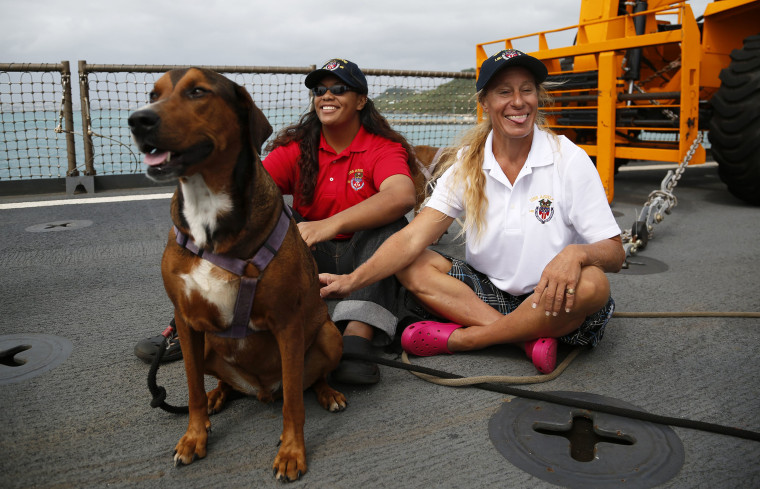HONOLULU — The U.S. Coast Guard said Monday that the two Hawaii women who were lost at sea for five months had an emergency beacon aboard their sailboat that was never activated.
U.S. Coast Guard spokesman Lt. Scott Carr told The Associated Press that their review of the incident and subsequent interviews with the survivors revealed that they had the Emergency Position Indicating Radio Beacon (EPIRB) aboard but never turned it on.
Parts of their story have been called into question, including the tropical storm the two say they encountered on their first night at sea in May. National Weather Service records show no organized storms in the region in early May.
When asked if the two had the radio beacon aboard, the women told the AP on Friday they had a number of other communications devices, but they didn't mention the EPIRB.
The device communicates with satellites and sends locations to authorities. It's activated when it's submerged in water or turned on manually.
Related: How Did 2 Sailors Survive 5 Months Lost at Sea?
During the post-incident debriefing by the Coast Guard, Jennifer Appel, who was on the sailboat with Tasha Fuiava, was asked if she had the emergency beacon on board. Appel replied she did, and that it was properly registered.
"We asked why during this course of time did they not activate the EPIRB. She had stated they never felt like they were truly in distress, like in a 24-hour period they were going to die," said Coast Guard spokeswoman Petty Officer 2nd Class Tara Molle, who was on the call to the AP with Carr.

Carr also said the Coast Guard made radio contact with a vessel that identified itself as the Sea Nymph in June near Tahiti, and the captain said they were not in distress and expected to make land the next morning. That was after the women reportedly lost their engines and sustained damage to their rigging and mast.
A retired Coast Guard officer who was responsible for search and rescue operations said that if the women used the emergency beacon, they would have been found.
"If the thing was operational and it was turned on, a signal should have been received very, very quickly that this vessel was in distress," Phillip R. Johnson said Monday in a telephone interview from Washington state.
The women also said they had six forms of communication that all went dead. "There's something wrong there," Johnson said.
The Hawaii residents reported that their sailing equipment and engine failed and said they were close to giving up when the U.S. Navy rescued them last week, thousands of miles off course. They were taken to Japan, where they didn't immediately respond to an email and call seeking comment Monday.